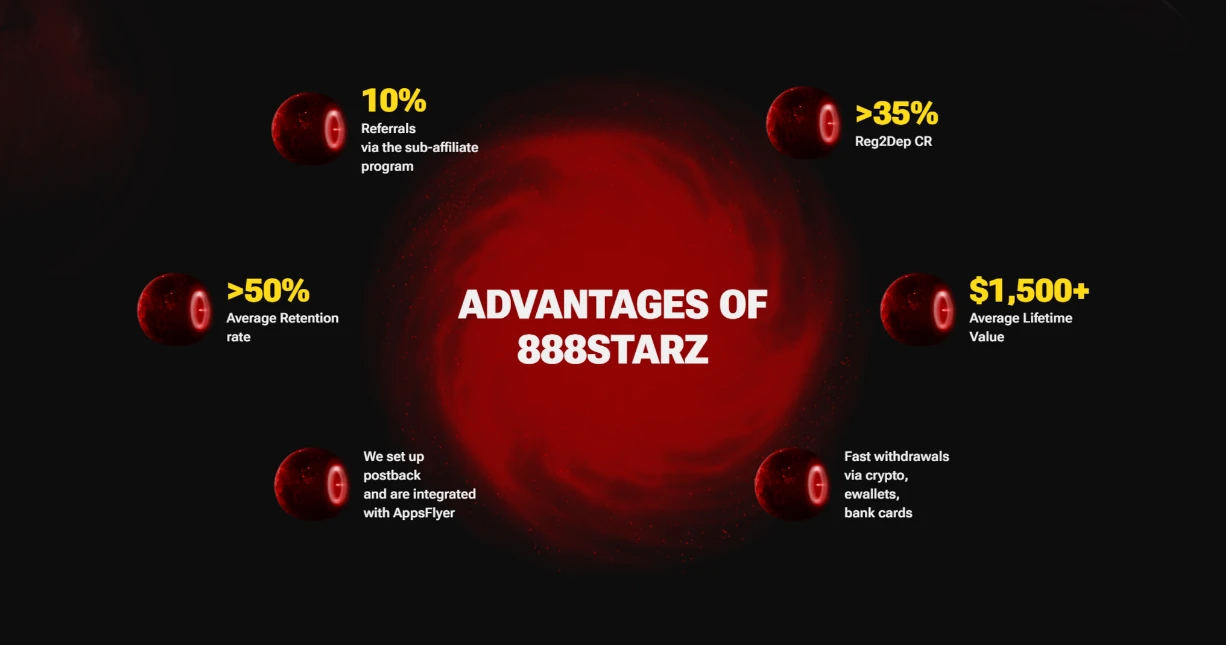The Impact of Biometric Feedback on Customizing Online Casino Game

The Impact of Biometric Feedback on Customizing Online Casino Game Pacing
Introduction to Biometric Feedback in Online Gaming
Online casino games have become increasingly popular over the years, with millions of players worldwide enjoying the thrill and excitement of playing their favorite games from the comfort of their own homes. As the online gaming industry continues to evolve, operators are looking for new and innovative ways to enhance the player experience. One such innovation is the use of biometric feedback to customize game pacing. By partnering with affiliate programs such as 888starzpartner, online casinos can gain access to a wide range of games and tools to help them better understand their players and provide a more personalized experience. In this article, we will explore the impact of biometric feedback on customizing online casino game pacing and how it is changing the face of the industry.
The Science Behind Biometric Feedback
Biometric feedback refers to the use of physiological data, such as heart rate, skin conductance, and brain activity, to provide insights into a person's emotional and cognitive state. In the context of online gaming, biometric feedback can be used to monitor a player's emotional state and adjust the game pacing accordingly. For example, if a player is experiencing high levels of stress or anxiety, the game can be slowed down to give them more time to make decisions and reduce the risk of impulsive betting. On the other hand, if a player is experiencing low levels of engagement, the game can be sped up to increase the level of excitement and challenge.
Types of Biometric Feedback
There are several types of biometric feedback that can be used in online gaming, including:
- Heart rate variability (HRV) monitoring: This involves measuring the variation in time between heartbeats to assess a player's stress and anxiety levels.
- Electrodermal activity (EDA) monitoring: This involves measuring the electrical activity of the skin to assess a player's emotional state.
- Electroencephalography (EEG) monitoring: This involves measuring the electrical activity of the brain to assess a player's cognitive state.
- Facial expression analysis: This involves using computer vision techniques to analyze a player's facial expressions and assess their emotional state.
Benefits of Biometric Feedback in Online Gaming
The use of biometric feedback in online gaming has several benefits, including:
- Improved player experience: By adjusting the game pacing to suit a player's emotional and cognitive state, biometric feedback can help to create a more engaging and enjoyable experience.
- Increased player safety: By monitoring a player's stress and anxiety levels, biometric feedback can help to prevent problem gambling and reduce the risk of impulsive betting.
- Enhanced player protection: Biometric feedback can help to detect signs of fatigue, stress, and other factors that may impact a player's ability to make informed decisions.
- Personalized gaming: Biometric feedback can be used to create personalized gaming experiences that are tailored to a player's individual needs and preferences.
Challenges and Limitations of Biometric Feedback
While biometric feedback has the potential to revolutionize the online gaming industry, there are several challenges and limitations that need to be addressed, including:
- Player acceptance: Some players may be hesitant to use biometric feedback technology, citing concerns about privacy and data security.
- Technical issues: Biometric feedback technology can be complex and require significant technical expertise to implement and maintain.
- Cost: Biometric feedback technology can be expensive, which may make it inaccessible to some online gaming operators.
- Regulatory frameworks: The use of biometric feedback in online gaming is subject to various regulatory frameworks, which can vary by jurisdiction.
Future Directions for Biometric Feedback in Online Gaming
Despite the challenges and limitations, biometric feedback is likely to play an increasingly important role in the online gaming industry in the future. Some potential future directions for biometric feedback include:
- Integration with artificial intelligence (AI) and machine learning (ML) algorithms: Biometric feedback can be used to train AI and ML models to create more personalized and adaptive gaming experiences.
- Development of new biometric feedback technologies: New technologies, such as functional near-infrared spectroscopy (fNIRS) and functional magnetic resonance imaging (fMRI), may offer new opportunities for biometric feedback in online gaming.
- Expansion into new markets: Biometric feedback may be used in new markets, such as esports and virtual reality gaming, to create more immersive and engaging experiences.
Conclusion
In conclusion, biometric feedback has the potential to revolutionize the online gaming industry by providing a more personalized and engaging experience for players. By partnering with affiliate programs such as 888starzpartner, online casinos can gain access to a wide range of games and tools to help them better understand their players and provide a more tailored experience. While there are challenges and limitations to be addressed, the benefits of biometric feedback make it an exciting and promising area of research and development in the online gaming industry.
|
|